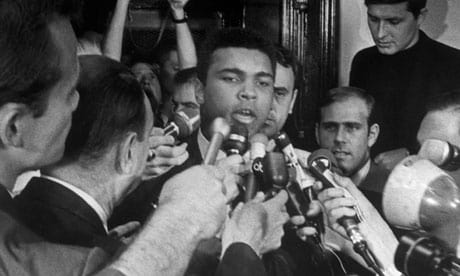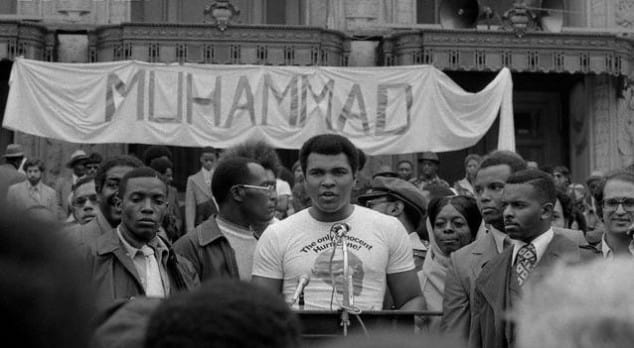Famed boxing legend Muhammad Ali (pictured second from left) is known all over the world for his legendary prowess in the ring, but he should be respected for being a man of strong principles as well. On this day in 1967, Ali was convicted and given five years in prison for refusing induction in to the United States draft as mandated by the Selective Service Act.
SEE ALSO: South Africa’s Boipatong Massacre Took Place On This Day in 1992
The Vietnam War was at its heights at the time, and American troops were waging what would  become a fruitless and losing battle. Back in April of that year, Ali made headlines by refusing to heed America’s call to service, because he was a part of the Nation of Islam and a Muslim. By this time, Ali was the World Champion and had converted to Islam in 1964, although major American papers refused to address him by his chosen spiritual name.
become a fruitless and losing battle. Back in April of that year, Ali made headlines by refusing to heed America’s call to service, because he was a part of the Nation of Islam and a Muslim. By this time, Ali was the World Champion and had converted to Islam in 1964, although major American papers refused to address him by his chosen spiritual name.
Ali famously quipped regarding the case, “I ain’t got no quarrel with those Vietcong” as part of his refusal to join the armed forces draft and named himself a conscientious objector, although the U.S. government refused his application for that status.
In a broader statement, Ali also said: “War is against the teachings of the Holy Qur’an. I’m not trying to dodge the draft. We are not supposed to take part in no wars unless declared by Allah or The Messenger. We don’t take part in Christian wars or wars of any unbelievers.”
Naturally, the rub against Ali was that he was a draft dodger and he was consequently stripped of his title. Two months later in Houston, the explosive trial to convict Ali was well underway with national and international outlets keyed in on the case because of the boxer’s notoriety and the controversy around the matter. Already stripped of his title earlier in the spring, he fearlessly took on the extreme scrutiny he faced.
“I’d appreciate it,” Ali said as reported then by the New York Times, “if the court will do it now, give me my sentence now, instead of waiting and stalling for time.”
The all-White jury, which included six men and six women, took well under a half hour to come to their verdict, which expected by Ali and his legal team. Ali appealed the felony portion of the conviction, which the U.S. Supreme Court later overturned in Ali’s favor in 1971 by a count of 8-0 with the lone Black court justice Thurgood Marshall refusing to vote.
Ali went on to became a symbol of the anti-war movement, and served just three years in prison before returning to the ring in 1970 to defeat Jerry Quarry. He later went on to have a series of epic battles with Joe Frazier, Leon Spinks, and George Foreman.












